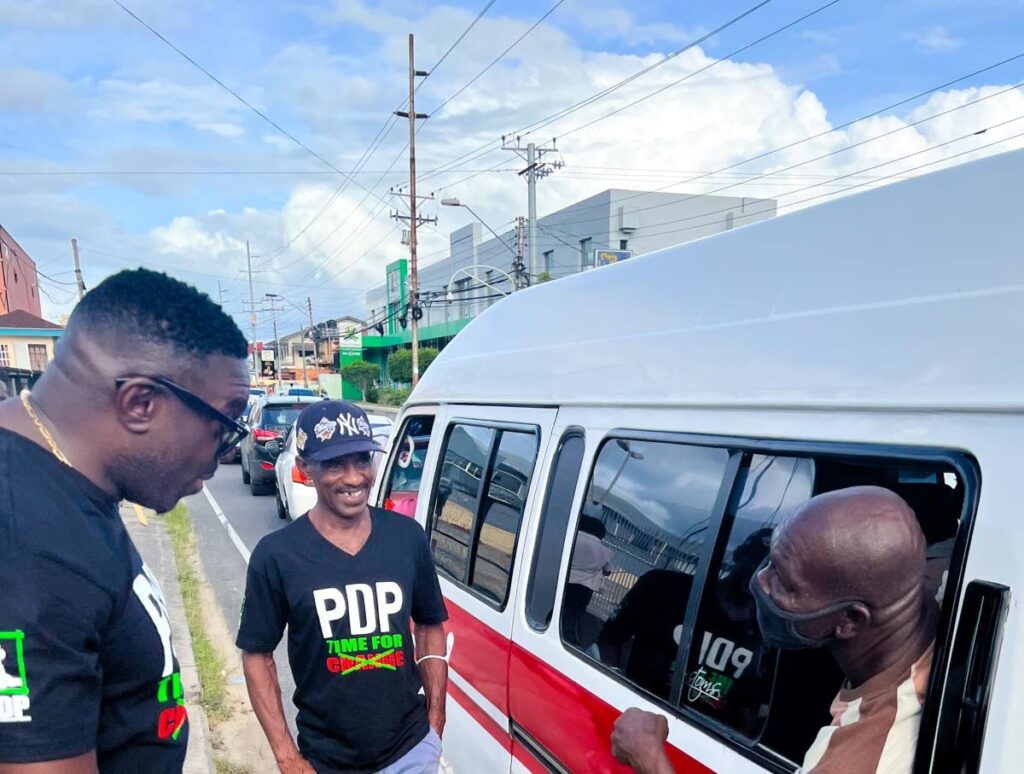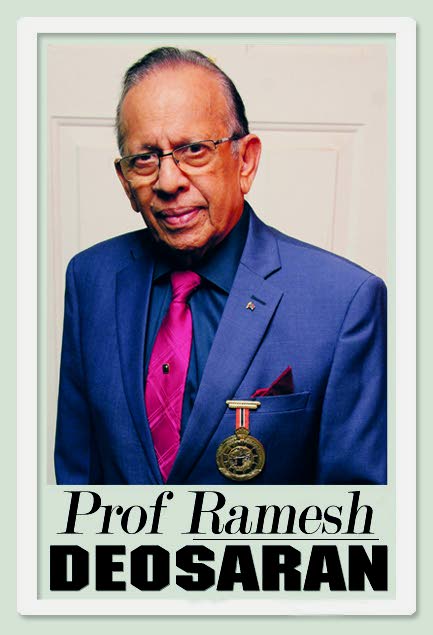Duke enters Trinidad politics

The colourful Tobagonian, Watson Solomon Duke, loudly announced, in fact, warned, that he is “coming to Trinidad.” “I will fight all elections in Trinidad,” he declared. Duke reminds me of Eddie Murphy’s movie Coming to America in which, after several hurdles and rebranding himself, Murphy, an African prince, eventually got what he wanted – a bride. Duke comes but will he conquer?
The media-savvy founder and leader of Progressive Democratic Patriots (PDP) has already opened offices and is preparing for the next local government elections as a run-up to the 2025 general elections. But many warn multi-ethnic Trinidad is not Tobago.
Tobago, Duke boasts, gained its “self-respect” and he and Farley Augustine intend to bring that to Trinidad. What else? Anything about reducing crime, about “morality in public affairs?” Anything about roads, drains and potholes, the Police Service Commission, public service reform, political accountability? Anything about WASA or reshaping relations between Tobago and Trinidad? Look, I may be pushing the envelope, but many Trinidadians are anxious for such improvements whether coming from PNM, UNC, or even the PDP. Recognising the pappyshow of campaign manifestos, however, Duke declared that the PDP will have “mandates,” not manifestos, and the THA will be held publicly accountable for them.
At his recent Mandate Monday media conference, THA Chief Secretary Augustine pledged that all THA divisional heads will publicly report quarterly on “their various successes and failures.” He intends to “change the way government works” by removing welfare programmes and payments from the hands of politicians.
Augustine is already facing some political challenges – political patronage, THA expenditure, etc. Given the integrity standards he has set for the THA and himself, he and Duke, the THA's deputy chief secretary, have to be careful to demonstrate them. The Trinidad electorate is looking on. Augustine instructively declared that his party’s 14-1 victory showed that spending plenty of money doesn’t really win elections. We will see.
Briefly, Dr Rowley’s PNM is no walkover even with its slipping political support at both the 2019 local government elections and 2020 general elections. The 66-year-old party is now feverishly striving to recover. And there is the Kamla Persad-Bissessar-led UNC which, though losing the 2015 and 2020 general elections, finds hope in pointing to its current 19 seats (309,654 votes, 47 per cent) over the PNM’s 22 seats (322,180 votes, 49 per cent). Duke, apparently recognising the vulnerability of the two PNM Tobago MPs. whispered a wish to be PM. Is an ANR Robinson-type alliance possible with Duke making a way in Trinidad for Augustine as in Tobago?
Smelling the elusive possibilities, undaunted Steve Alvarez published this suggestive notification last week: “Watson Duke, Bhoe Tewarie, Timothy Hamel-Smith, Gary Griffith, Phillip Alexander, Hubert Volney, Fuad Abu Bakr, Louis Lee Sing, Londsdale Williams, Robert Amar, Errol Fabien, Lennox Smith, Kirk Waithe, Umar Abdullah, Inshan Ishmael, Kenneth Munroe-Brown, Nikoli Edwards, and Mickela Panday are all names” who reportedly showed “interest in the country’s welfare.” Hmmm.
However, even the UNC’s capturing seven of the 14 municipal corporations (UNC 202,584 votes, 54.4 per cent, PNM 161,962, 43.5 per cent) fails to dim calls from inside and outside the party for Persad-Bissessar to step down. Misguided calls, she insists. With the COP over the hill, is there space for a viable third party to attract voters from the PNM and UNC, and also from the estimated 30 per cent “in-waiting” voters in a general election?

With shifting variables, the country’s politics are often more calculus than simple arithmetic. This was shown by the 1981 defeat of the Organisation for National Reconstruction (ONR) and the 1986 stunning victory of the four-party alliance, the National Alliance for Reconstruction (33-3, 66 per cent of the votes). This alliance eventually fell apart, then suffered defeat in the 1991 election by the quickly-recovered PNM.
While Duke’s PDP confidently went it alone in Tobago, the evidence suggests difficulty for a single opposition party to beat the PNM in Trinidad. The 1986 defeat of the PNM was the first of only four times the PNM got beaten. The party got beaten again in 1995 with a UNC-NAR alliance (UNC 17, NAR 2 vs PNM -17); in 2000 by a UNC-NAR alliance (UNC 19, NAR 1 vs PNM 16 seats); in 2010 with a strong four-party People’s Partnership alliance – 29 seats (UNC 21, COP 6, Tobago Organisation of the People (TOP) 2. So would the threatened queen now court the crafty Duke?

Comments
"Duke enters Trinidad politics"